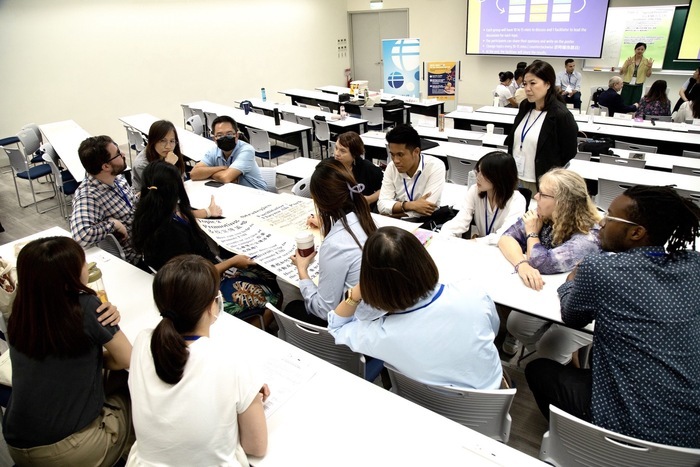Taipei Tech and Fulbright Invited Five Schools to Share EMI Experiences

Taipei Tech and Fulbright Taiwan invited the EMI (English as a Medium of Instruction) teaching groups from five schools to the EMI consensus meeting on September 18th to discuss strategies and annual goals for a better bilingual teaching and learning environment. The five schools included National Taipei University of Technology, National Cheng Kung University, National Sun Yat-Sen University, National Taiwan University of Science and Technology, and National Central University.
In his remark, Fulbright Taiwan CEO Dr. Randall Nadeau said that EMI programs are important to universities for many reasons. EMI programs could incentivize international students to consider studying in a university. Embedding local students in EMI program can enable them to express their opinions and creativity in an international workplace, making them better cross-cultural communicator and more competitive on the international stage. As a bridge between Taiwan and international partners, Fulbright Taiwan offers customized instruction consulting services that aim to improve teaching qualities and help Taiwanese talents stand out globally.
Tzeng Shin-yuan, official from the Department of Higher Education of the Ministry of Education (MOE), thanked Fulbright Taiwan and the forty English instructors from aboard for their support. He is confident that, through the multifaceted collaboration, Taiwanese students will have better communication skills, career competitivity, and global mobility via EMI programs.
Dr. Hwang Yuh-Shyan, Taipei Tech Dean of Academic Affairs and Director of Center for Bilingual Learning, indicated that Taipei Tech had initiated a policy to have a specific percentage of English-instructed courses in graduate schools before the launch of EMI. Furthermore, the school has implemented ESP (English for Specific Purposes) programs that serve as good foundation to progressively incorporating EMI programs. MOE has recognized three colleges at Taipei Tech as principal EMI institutions. These include the College of Electrical Engineering & Computer Science, the College of Engineering, and the College of Management. Earlier this year, selected Taipei Tech teachers underwent training abroad, participating in EMI instructor training in the University of California at San Diego and Penn State University. Combined with EMI resources that Fulbright Taiwan provides, Taipei Tech aims to boost the English instructional skills of lecturers in multiple ways.
The Southern Regional Resource Center for Bilingual Education in National Sun Yat-Sen University has been holding seminars and workshops for nine schools in Kaohsiung, Pingtung, Taitung, and Nantou in the past year. The members regularly exchange instructional resources and share experiences. Attendees from National Cheng Kung University noted that the 36-hour online training workshop with two EMI trainers has been helpful and facilitated more interaction than a traditional classroom setting.
